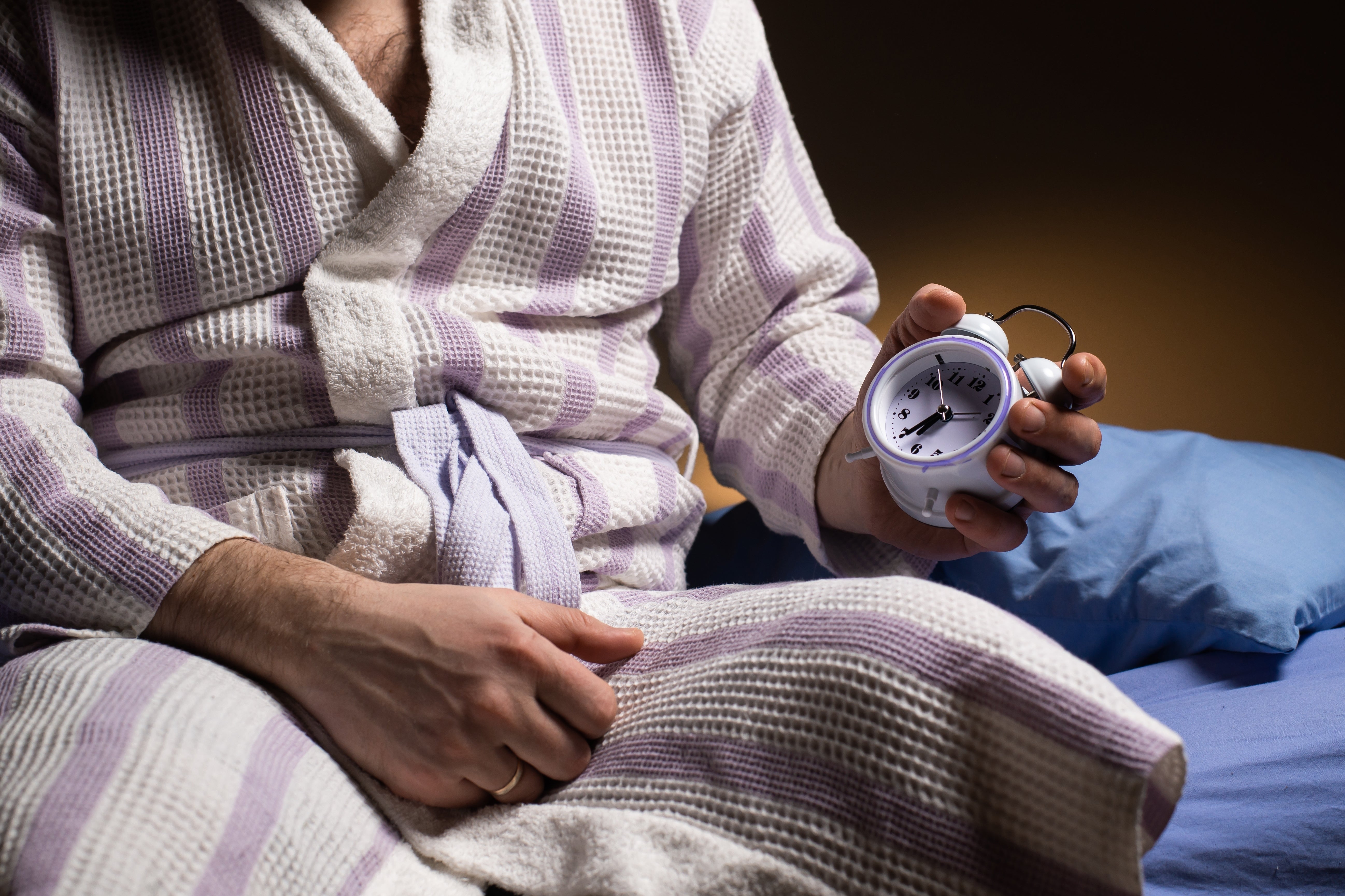What is Andropause?
Both men and women undergo various physiological changes as they age. While women experience menopause, men go through a similar phase known as andropause. Andropause, often referred to as "male menopause (manopause)," is a significant yet often misunderstood aspect of men's health. It's a natural transition characterized by a gradual decline in testosterone levels, which plays a crucial role in men's overall well-being.
Importance of Optimal Testosterone Levels
Just as estrogen levels are vital for women's health, testosterone is the key hormone that fuels men's vitality and vigour. Testosterone impacts a range of functions, including muscle mass, bone density, energy levels, mood, and even cognitive function. Maintaining optimal testosterone levels is not only essential for physical health but also greatly influences the mental and emotional aspects of a man's life.
As men age, there's a natural decline in testosterone production, which can lead to various symptoms and changes in the body. These may include reduced energy, muscle loss, decreased libido, mood swings, and even difficulties in maintaining focus.
Understanding Andropause
Andropause is often defined as the period of life when men experience a decrease in testosterone levels, typically starting in their late 30s or early 40s. Unlike the abrupt hormonal shifts seen in women during menopause, andropause is a more gradual process. It's marked by a decline in the production of testosterone, which can lead to various physiological and psychological changes.
One common misconception is that andropause is solely related to age. While age does play a significant role in the onset of andropause, it's not the only factor. Lifestyle choices, genetics, and overall health can also influence the timing and severity of andropause symptoms. Therefore, it's important to understand that andropause isn't solely a matter of growing older; it's a complex interplay of various factors.
Addressing Deficiencies
Exploring the Role of Nutrient Deficiencies in Andropause
As we age, the body's nutrient requirements change and deficiencies can have a direct impact on hormonal balance, including testosterone levels. Nutrients such as vitamin D, zinc, and omega-3 fatty acids play a crucial role in supporting healthy testosterone production. Unfortunately, modern diets and lifestyles can sometimes lead to imbalances in these essential nutrients.
The Link Between Deficiencies and Andropause
Deficiencies in specific nutrients can contribute to the onset and progression of andropause. For example, vitamin D deficiency has been linked to lower testosterone levels and impaired reproductive function. Similarly, zinc deficiency can negatively affect testosterone synthesis and lead to hormonal imbalances.
Recognizing Symptoms and Effects
As testosterone levels decline during andropause, it can have a profound impact on various aspects leading to a reduced quality of life for some men. Following are a few of the symptoms to look out for:
- Mood swings, mainly being irritable.
- Feeling less energetic in general.
- Distribution of fat. (Example: Increase in belly fat)
- Insomnia
- Short-term memory or lack of focus
- Loss of muscle mass coupled with a decrease in bone density.
- Decreased libido
- Erectile dysfunction
These symptoms can make everyday activities more challenging. The fatigue that often accompanies andropause can further diminish one's energy and motivation. The combination of physical and psychological changes can create a complex set of challenges that affect a man's overall well-being. This emphasizes the importance of addressing andropause or manopause comprehensively.
Solutions for Andropause
The question that often arises is whether andropause can be reversed. While andropause itself cannot be fully reversed, its effects can be managed and minimized through targeted interventions. By adopting a proactive approach, men can experience a significant improvement in their overall well-being even during andropause.
Practical Tips and Lifestyle Changes
-
Maintain an Active Lifestyle:
Regular physical activity, including both aerobic and strength training exercises, can help preserve muscle mass and boost energy levels. -
Balanced Nutrition:
A diet rich in lean proteins, healthy fats, whole grains, and a variety of fruits and vegetables can support hormonal balance and overall health. -
Stress Management:
Incorporate stress-reduction techniques such as mindfulness, meditation, and deep breathing to alleviate the psychological impact of andropause. -
Adequate Sleep:
Prioritize quality sleep to enhance recovery, promote hormone production, and improve mood. -
Natural Testosterone Boosters:
Natural testosterone boosters have gained significant attention. These t boosters, often derived from herbal sources, offer a holistic approach to addressing testosterone decline during andropause. By utilizing natural ingredients, they aim to stimulate the body's testosterone production, providing a more sustainable solution to the harrowing question – how to increase testosterone level?
The Role of Ayurveda in Addressing Andropause
Let's dig a bit deeper into Ayurveda, the ancient Indian system of holistic medicine. Its approach to addressing andropause is rooted in balancing the body's energies and supporting hormonal harmony through natural means. Ayurvedic practices encompass dietary adjustments, herbal remedies, and lifestyle changes that collectively contribute to a healthier and more fulfilling life.
Andropique is an ayurvedic testosterone booster derived from Fenugreek. This clinically proven formula enhances bio-available and free testosterone within physiological limits, offering a safe and effective way to combat the effects of andropause. With the power of Fenugreek, a well-regarded herb in Ayurveda, Andropique presents a promising avenue for men to navigate andropause while embracing their vitality.
Frequently Asked Questions
- What is the age of andropause?
Andropause typically starts in the late 30s to early 40s, but its onset can vary due to factors like genetics and lifestyle. - What are the effects of andropause in men?
Effects include reduced energy, muscle loss, mood swings, and diminished libido, affecting both physical and emotional well-being. - What is the cure for andropause?
Andropause isn't curable, but its effects can be managed through lifestyle changes, natural supplements, and healthy habits. - What age is the peak male hormone?
Testosterone peaks in early adulthood, around the age of 20, and gradually declines afterward. - Is andropause serious?
While not life-threatening, andropause's effects on well-being are significant. Addressing it can greatly improve the quality of life. - Do men lose testosterone after 30?
Yes, testosterone levels decline after 30. However, maintaining an active lifestyle and healthy habits can mitigate this. - Can men reproduce after andropause?
Andropause doesn't necessarily mean the end of reproduction, but fertility may decrease. Consultation with a fertility expert is advisable. - What deficiency causes andropause?
Deficiencies in nutrients like vitamin D, zinc, and omega-3 fatty acids can contribute to hormonal imbalances during andropause. -
How to increase testosterone level?
You can naturally support testosterone by staying active, eating a balanced diet, managing stress, and considering natural supplements like Andropique.
Takeaway
Andropause or manopause is a natural phase of life that men can navigate with grace and vitality. As we've explored the ins and outs of andropause, it's clear that this transitional period doesn't signify the end of vibrancy but rather an opportunity to embrace life with renewed vigour.
Maintaining optimal testosterone levels isn't just about physical health; it's a holistic approach to overall well-being. By addressing andropause through exercise, balanced nutrition, stress management, and considering natural supplements, men can unlock their full potential and live life to the fullest.
So, as you stand at this juncture of life, remember that andropause is a chapter, not the whole story. The road ahead is rich with possibilities for a fulfilling and vibrant life. You have the tools to navigate andropause with confidence. It's your journey, and it's time to make it a remarkable one.

